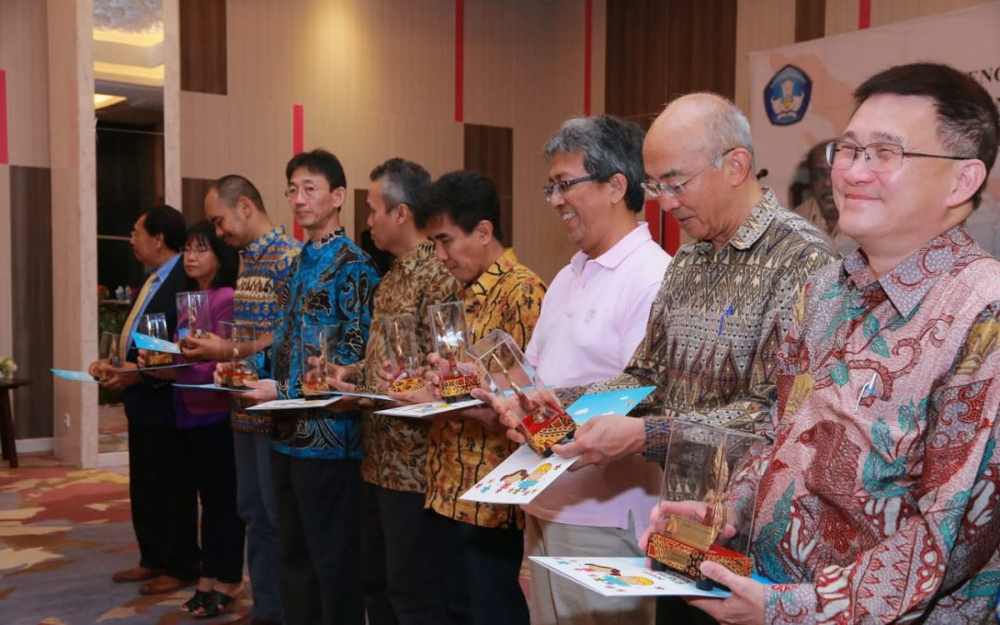News
SCIS Faculty Member Helps Foster Teaching With Technology in Papua, Indonesia
March 15, 2019

Dr. Hans Dulimarta, an Associate Professor in the GVSU School of Computing and Information Systems has recently been working with the non-profit Indonesian American Society of Academics (IASA) to help promote teaching with technology in Papua, Indonesia. Originally from Indonesia, Dr. Dulimarta sees how the country undergoes different stages of its development over time. Decades ago, provinces geographically closer to the nation capital of Jakarta benefited more than other remote places of Indonesia. Being one of the furthest provinces on the east side of Indonesia, the island of Papua suffered from unequal development opportunities. Fortunately, the current administration demonstrates a strong commitment to improving the situation and the government has allocated more resources to less developed remote provinces.
As a professor who teaches at an American university, Dr. Dulimarta shares similar experience with many other Indonesian professionals who seek advanced degrees from American universities and continue to work in the USA. Despite working full-time in their fields, these professionals still maintain connections with their home country and feel encouraged to use their expertise to contribute for the betterment of Indonesia. Some of these professionals founded IASA, to formalize their collaborative effort. To address the Papua challenge, IASA volunteers began working remotely with teachers from selected high schools in Papua. The 12-hour time difference between Indonesia and states in the US allows IASA volunteers to get involved in the project without disrupting their day-time duties. They can be present for late-evening VoIP meetings while the Papua teachers were working at their schools during normal work hours. After establishing a number of goals for the project, a team of IASA volunteers flew to Indonesia to see first-hand evidence of the actual conditions of the schools, their curriculum, facilities, school building, dormitories, teachers, and students. It took the team several visits from the US to Jakarta to Papua in 2017 to collect survey data.
Having individuals with a diversity of expertise on the team enables IASA to design a comprehensive improvement program for selected regions in Papua where they’ve launched two major projects: telemedicine and education improvement. The team believes that improving only the curriculum without improvement in other areas is not as effective. As part of the package, they recommend the schools build a new Science Park as a central place for students to be involved in active learning. To provide room in the curriculum for students to spend adequate amount of time in the Science Park, the IASA team came up with an integrated curriculum design which requires teachers of different subjects coordinate their assignments so students can work on one assignment that counts towards grades for several courses. The team also recommends use of tablets for teachers to deploy assignments and monitor students’ progress.
When Dr. Dulimarta became aware of IASA and joined the organization around January 2018. While other team members work with Papua teachers to restructure the delivery of the high school curriculum, Dr. Dulimarta focuses his efforts on developing an iPad client to be used by Papua students and teachers for their Science Park active learning activities. In early summer 2018, Dr. Dulimarta began to explore how to customize Moodle (an open source learning platform) and explored the Moodle APIs to interface with an iPad client. The first prototype of the iPad client was presented to the Papua teachers during a 1-week workshop in July 2018 at Jayapura, Papua, Indonesia.
